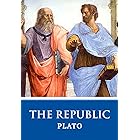| Print List Price: | $5.14 |
| Kindle Price: | $0.99 Save $4.15 (81%) |
| Sold by: | Amazon.com Services LLC |
Your Memberships & Subscriptions

Download the free Kindle app and start reading Kindle books instantly on your smartphone, tablet, or computer - no Kindle device required.
Read instantly on your browser with Kindle for Web.
Using your mobile phone camera - scan the code below and download the Kindle app.

OK
An Enquiry Concerning Human Understanding [with Biographical Introduction] Kindle Edition
- ISBN-13978-1420926996
- PublisherDigireads.com
- Publication dateJuly 1, 2004
- LanguageEnglish
- File size297 KB
Customers who bought this item also bought
Product details
- ASIN : B000FC1X7C
- Publisher : Digireads.com (July 1, 2004)
- Publication date : July 1, 2004
- Language : English
- File size : 297 KB
- Text-to-Speech : Enabled
- Screen Reader : Supported
- Enhanced typesetting : Enabled
- X-Ray : Not Enabled
- Word Wise : Enabled
- Sticky notes : On Kindle Scribe
- Print length : 164 pages
- Page numbers source ISBN : 1545062714
- Best Sellers Rank: #1,076,167 in Kindle Store (See Top 100 in Kindle Store)
- #329 in History of Philosophy & Schools of Thought eBooks
- #12,102 in Fiction Classics
- #15,767 in History of Philosophy & Schools of Thought
- Customer Reviews:
About the author

Discover more of the author’s books, see similar authors, read author blogs and more
Customer reviews
Customer Reviews, including Product Star Ratings help customers to learn more about the product and decide whether it is the right product for them.
To calculate the overall star rating and percentage breakdown by star, we don’t use a simple average. Instead, our system considers things like how recent a review is and if the reviewer bought the item on Amazon. It also analyzed reviews to verify trustworthiness.
Learn more how customers reviews work on Amazon-
Top reviews
Top reviews from the United States
There was a problem filtering reviews right now. Please try again later.
Hume's major work, 'A Treatise of Human Nature', was not well received intially - according to Hume, 'it fell dead-born from the press'. Hume reworked the first part of this work in a more popular way for this text, which has become a standard, and perhaps the best introduction to Empiricism.
In a nutshell, the idea of empiricism is that experience teaches, and rules and understanding are derived from this. However, for Hume this wasn't sufficient. Just because billiard balls when striking always behave in a certain manner, or just because the sun always rose in the morning, there was no direct causal connection that could be automatically affirmed - we assume a necessary connection, but how can this be proved?
Hume's ideas impact not only metaphysics, but also epistemology and psychology. Hume develops empiricism to a point that empiricism is practically unsupportable (and it is in this regard that Kant sees this text as a very important piece, and works toward his synthesis of Empiricism and Rationalism). For Hume, empirical thought requires skepticism, but leaves it unresolved as far as what one then needs to accept with regard to reason and understanding. According to scholar Eric Steinberg, 'A view that pervades nearly all of Hume's philosophical writings is that both ancient and modern philosophers have been guilty of optimistic and exaggerated claims for the power of human reason.'
Some have seen Hume as presenting a fundamental mistrust of daily belief while recognising that we cannot escape from some sort of framework; others have seen Hume as working toward a more naturalist paradigm of human understanding. In fact, Hume is open to a number of different interpretations, and these different interpretations have been taken up by subsequent philosophers to develop areas of synthetic philosophical ideas, as well as further developments more directly out of Empiricism (such as Phenomenology).
This is in fact a rather short book, a mere 100 pages or so in many editions. As a primer for understanding Hume, the British Empiricists (who include Hobbes, Locke, and Berkeley), as well as the major philosphical concerns of the eighteenth century, this is a great text with which to start.
While the proposition (a = b therefore b = a) is analytical, as it is a definition, from which (c = b therefore c = a) may be derived.
The initial proposition is a definition, not any type of observation. The conclusion is a derivation from the definition, not an observation.
But, (1 + 1 = 2) is an observation, synthetic knowledge. The ability to count is derived from the initial thing counted; it is not a mere definition. Were Hume correct, an analytical proposition could be used to establish a synthetic reality, which is impossible.
v = f(x) where v is variation and f means a function and x is a value.
It is a concept, analytical, saying nothing about reality. If you add reality: v being variation in gender of an human individual and w being weight. Gender does not alter because weight changes. But if you say v is weight and x is age, there will be a change in weight with age.
If the analytical could prove the synthetic, existance would become a true predicate.


![An Enquiry Concerning Human Understanding [with Biographical Introduction]](https://m.media-amazon.com/images/I/61sYH+DcPKL._SY445_SX342_.jpg)
![A Treatise of Human Nature [with Biographical Introduction]](https://images-na.ssl-images-amazon.com/images/I/61AVyF00+WL._AC_UL140_SR140,140_.jpg)






